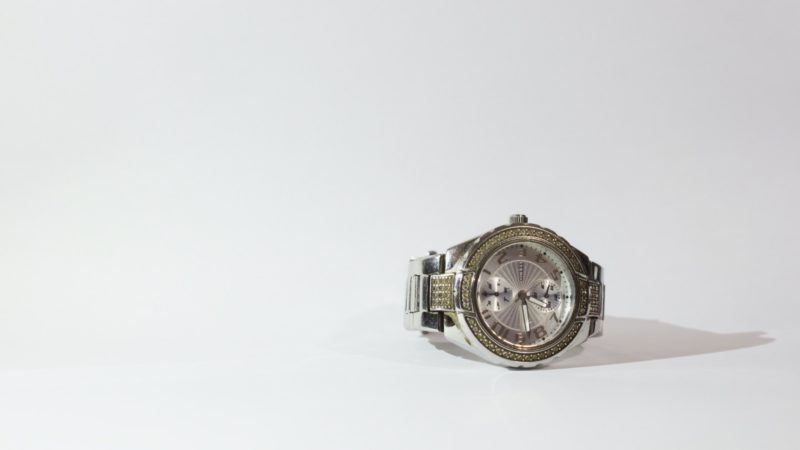Business leaders are wondering about the second wave of the pandemic even as they stick to short-term plans. In the first wave spanning the spring and summer of 2020 some businesses scored dramatic wins due to changes in people’s habits while many others fell on hard times. This article talks about some of the ups and downs. The insights are gained from consulting fieldwork or distilled out of Russian media publications (links in post-scriptum)
Someone laughed, someone cried, stone was ground on stone
Daily to-do lists got longer in September. Compared to summer, more cars are seen in the streets, more people are out for walks and runs in recently deserted parks. Dacha dwellers came back to Moscow and spotted changes here and there: a pharmacy where a grocery store used to be, “to let” signs, “wear masks!” posters.
The Russian economy is expected to recover quickly as state-owned and state-connected companies prevail except for the small business sector which has become insignificant.
Beyond the state sector a few private segments of the economy have prospered during the pandemic such as IT and Telecom and food retailers and e-commerce. Outside of these few segments, enterprises not connected with the state or not supported by state contracts are struggling, some have stopped doing business. In my neighbourhood, a small store “One Thousand Useful Trivialities” taped a handwritten note to the entrance door: “The shop is closed down.” adding “For good!!!” As if to slam the door to make the point.
Successful small businesses, or those who grew big relying only on their own resources balance and progress due to hard work and a relentless search for best solutions. This does not mean, however, that those who failed did not make an effort.
The fur clothing business that stopped
The owner of the company «Mexico» revealed the reasons for their failure in his interview by a local website in Kirov, some 900 km to the East of Moscow. The geographical association is nothing more than a play upon words, «Mekh» meaning «fur» in Russian. The company was launched in the 1990s. They stopped making coats and hats during the pandemic and will not resume the production.
The director believes that his business could have been saved had the state let it withdraw, in the time of the lockdown, a part of the taxes «Mexico» had paid earlier. The company had been contributing 1.5 million roubles per annum to the state budget ( ~20k USD/17k EUR/16k GBP, or cost of a 30 sq.m. studio in Kirov).
“In vain we waited” he says, “we did not find ourselves in any of the support programmes. Manufacturing enterprises not seen as systemically important were left out of state relief efforts.”

The fur apparel manufacturer does not blame the lockdown, nor a climate change, nor fashion. He believes that the business would have gone bust eventually in any case as a result of the declining living standards the majority of the Russian people have experienced during the last five years.
In addition, he criticises the Russian Central Bank policies such as a high refinancing rate and the reduction of the monetary supply in 2014-2017 which he said helped big banks, but hurt producers.
A beauty salon will not work online
In Moscow, the city authorities strongly recommended staying indoors from March 30th to May 25th, announcing “a regime of days off and self-isolation”. Many businesses coped by embracing on-line activities.
However, small traders without delivery, and many others such as hairdressers, beauty salons and fitness clubs did not have such an opportunity.
To support their employees, they turned to state support (minimum wages, 162 USD/month), or resolved the problem at their own discretion out of their own resources.
Digitisation of paperwork
The quarantine had accelerated a technological transition forcing companies to invest and clients to use digital options. Just as the Russian proverb has it: “there was no happiness, so misfortune helped”.
One example from the banking industry: in August Russian Raiffeisenbank organised a first ever syndicated loan in digital format in Russia. The loan closed without the eleven participating sides printing out a single document.
The head of the Large Corporate department remarked in his interview to RosBusinessConsulting: “Back in January, I would say that we will come to such a thing in five years from now, because I was sure that only then clients would be ready”.
«Avito» grows as people spend more time online
An online marketplace for classified advertisements, Russian company Avito, places 60 million announcements on its websites daily. As for volume, it is the second largest catalogue in the world after the industry pioneer, the US Craigslist.
Locked in flats and dacha houses, people wanted to enjoy fresh air at least on their balconies and terraces. To make space under the spring sun and enable all adults and kids to do their working and learning, families emptied space, rearranged wardrobes and drawers, sold some things and bought others.

«Avito» enjoyed a boom in 2009 after a successful promotional campaign: «How much does your mess cost?». They continued to grow thanks to the size of the country and its population, and Internet penetration.
In the age of lockdown the idea of things being smartly re-used is in trend again.
The company CEO mentioned in his interview to KPMG in August that the use of services related to renovation and household goods skyrocketed and more than doubled in volume during the lockdown. Perhaps this should come as no surprise; confined to one’s home many start to feel the urge to repair, renovate and decorate.
Online triumph of a typical offline store VkusVill
VkusVill’s (“vkus”-taste) managers say that they were lucky to launch their stores in the right place at the right time. The business operates since 2009 and consistently delivers on its promise, one which has won the hearts of Russia’s middle class: “tasty and healthy food products at affordable prices.”
VkusVill comes with a simple concept: a small shop in a residential building, fresh food products with short shelf life, product manufacturers supply based on orders, goods are sold under the brand name.
VkusVill did not offer delivery services before the lockdown. To be precise, delivery was possible but a Gett taxi bill would be added. There was not much demand though because the shops were associated with proximity in the first place.
The pandemic has shaken the model “fresh food, next door shop”. The small space poses the risk of infection for customers and workers alike. Seventy per cent of VkusVill’s product range are goods with a short shelf life, which would get written off and discarded if the shops didn’t draw regular traffic.
VkusVill team channeled major resources into developing its on-line operation and launching a fast and free-of-charge order delivery service direct to the customer. Already in June revenues from goods sold online comprised 12 per cent of the total.
During the pandemic online sales increased thirty times. Technology alone would not have done this. The company has managed to provide a consistently high quality of the execution: they make it a point to examine all items carefully and to package things with care.

The CEO of VkusVill said in a recent interview about the success of their online business: “We do not like to complicate things, so the only rule we set for our shop assistants doing online orders was – ‘do it as if you are doing it for yourself’. It is clearer than hundreds of useless instructions. Will you pick up a rotten apple when you shop for yourself? Do not put it in a customer’s bag either. It’s as simple as this.”
Customers’ trust has always been on the top of VkusVill’s priority list. They proudly say that it’s the customers who manage their company. They constantly work with feedback they receive from customers, to improve their own processes as well as products of their suppliers.
The company’s director for communications writes in his book published early this year: “When we speak at professional events, it’s always an overwhelming success. The audience seems to rejoice at some obvious facts. We say something like ‘To gain trust, it is important to maintain dialogue with your customers’ – and we get a roar of applause.”
This never happened before… and here we are, dancing again
The story was told by one of my clients, the director of a Moscow dance school which also organises dancing events and competitions. The core team calls the school ‘club’. The director has been taking care of the club’s operations for fifteen years with no days off; it has never been an easy task to sustain the business.
Opening the doors after the lockdown, they faced a huge debt for premise rent. The dancing hall is quite large, Moscow rental rates are high. Negotiating with the premise owners only got an agreement allowing some more time for the payment. State support of up to several minimum wages, which the club was entitled to as one of “enterprises in the sphere of culture and entertainment” – was a pittance, not a solution.
Moreover, some internal issues suddenly became visible. A tension between the administration and dancing instructors seemed to be in the air after the pandemic.
Before, the relations had always seemed manageable and problem-free. But after two months of quiet life in lockdown, important decisions were probably bound to come. Several dance teachers decided that they wanted to leave the school and work under their own names.
The loyal majority showed interest in a more active participation in organising various club events and more – including influencing the school’s strategic plans.

As for the rent payment obligations, the school decided to raise the necessary amount selling long-term passes to lessons and events.
More than a dozen of packages were designed to offer various combinations of group lessons, individual classes and events – instead of usual one month, three month or six month passes.
The director decided not to hide the financial difficulties and added a comment on debt to the big announcement. Among many options, the offer listed this one: “A donation, to support the club”. To his utter astonishment, one quarter of the necessary amount was collected thanks to this one. People would just make transfers to the club account and buy a package on top of that.
“On the one hand, – the club director says – I see this support as a thank you from customers and partners, for the effort we have been making during all those years, to build friendly relationships. On the other hand, this is an advance, a gesture and a credit. I greatly appreciate it and want to live up to school’s students and partners expectations. I do not want to disappoint them. I only wish I knew exactly what they are expecting?” The answer is certainly “to ask them”.
A couple of points should be taken into account here.
First, as in any business, ‘the club’ is not only school students and guests but also people who work for it. “What do you like here? What should be improved? Today, what was good and what didn’t you like?” these are the questions to ask both groups, clients and instructors.
Second, respondents will give answers more readily if they understand how their information will be used. When you have opinions collected and studied, thank the survey participants once again and explain what suggestions you will act upon and why.
The intense turn to online time has already changed us, and this will go on
At the webinars and numerous conference calls which have been a daily routine since March, we’ve acquired some new facile habits: making the chairperson’s voice lower or muting it entirely, remaining or becoming invisible or just refraining from active participation in discussion.
Sensitivity to one’s own sensibilities and a new understanding of what makes one feel more comfortable will endure to remain part of post-isolation life as well.
We know better what we want. Changing circumstances and growing anxiety have made many more determined to concentrate on things they find really important. Some decided to insulate their dacha house and leave the city for good. Others decided to change occupation and are calculating what compromises they are ready to make.
Expectations became more clear, yet they will keep changing. For client –oriented businesses the recipe is the same: to meet changing demands, one has to observe and collect feedback.
But the loop does not stop there. After implementing changes it is important to get back to customers and ask: “we acted upon your recommendations…what do you think? When the future is uncertain it is better not to rely on regular seasonal surveys but instead to find simple, fast and inexpensive ways to collect feedback more often and make quick fixes. ∞

Comments and links:
1) State support of SMEs
At the end of April, the government of the Russian Federation approved rules for granting subsidies to small businesses (*annual turnover up to 800 million RUB,~ 9 mln EUR, up to 100 employees) and medium-sized businesses (*annual turnover up to 2 billion RUB, 22.5 mln EUR, up to 150 employees) to maintain employment in April and May.
Companies in sectors affected by the Coronavirus could become recipients of subsidies: air transport, culture and leisure, physical education and sports, tourism, hotel business, cafes and restaurants, additional education, consumer services – provided that they paid taxes and insurance premiums and retained at least 90 percent of employees compared to March 2020.
The amount of compensation was 12130 RUB per month per employee (137 EUR), official minimum wage. For reference, the cost of utilities in Moscow when living in a flat of about 50 square meters is about 5k RUB. The Government has proposed a mechanism by which from 30 March to 1 October 2020, banks give preferential loans to affected companies (all, not only SME) for up to 12 months, and the “opportunity costs” are reimbursed to banks from the budget. Within six months (no later than 30 November 2020), the rate for the borrower is 0% per annum, then no more than 3.5%. The loan must be targeted at maintaining employment (first and foremost, at paying salaries). The market lending rate for SME is from 9 to 13 per cent per annum as of September 2020.
https://meduza.io/news/2020/08/14/v-rossii-za-god-zakrylsya-million-predpriyatiy-malogo-i-srednego-biznesa https://www2.deloitte.com/content/dam/Deloitte/ru/Documents/tax/mery-podderzhki-covid.pdf
2) restructuring of bank loans to individuals
As for individuals, from 20 March to 6 May 2020 – according to the Central Bank – approximately 330 billion RUB of their debt got restructured, almost 2% of the banks’ retail loan portfolio. In total, banks received about 1.4 million applications to change the terms of the loan agreement in spring 2020.
On April 3rd, the Credit Holiday Law came into force, which gives the right to defer payments to a bank or a microfinance institution for up to six months. At a press conference on May 8th, Central Bank Chairman Nabiullina said that the highest level of approvals among the credit holiday programme applications is for mortgages, 80%, and that overdue loans are expected to grow in the second half of the year.
https://www.vedomosti.ru/finance/articles/2020/05/12/830021-banki-restrukturirovali-rossiyanam-330-mlrd-rublei-kreditov
From 6 July 2020, every fortnight on Mondays, the Central Bank publishes on its website data on the progress of debt restructuring for individuals and legal entities, in provision of credit holidays in connection with the coronavirus pandemic, as well as statistics on consumer complaints and appeals. https://www.cbr.ru/analytics/drknb/
3) Raiffeisenbank
The bank (Raiffeisen International group) has been operating in Russia since 1996 and is one of the country’s 11 systemically important banks.
https://www.raiffeisen.ru/about/
“We understand that we can win with any of our products”. Dmitry Sredin, Head of the Large Companies Department at Raiffeisenbank, talks about the digital transformation, the probability of a crisis wave of bankruptcies and about the long-term consequences of the pandemic for the banking industry. RBC, 31 August 2020 https://plus.rbc.ru/news/5f4ca8607a8aa9109330a01c?fbclid=IwAR0IQ8XovAaZBb8qwXJPNrpNKg0377IGZu4BHijADQOKCprw2Ae1kPFYKY0
4) RBC, RosBusinessConsulting,
a major Russian media holding company, founded in 1993. https://www.rbc.ru/
5) About Mexico, the Kirov production company.
“We did not plan to make the news”, 29.06.2020 http://bnkirov.ru/articles/45968?fbclid=IwAR3pA2IN_xGNeIDZfwD8ZxX7ZKV_Q2NaY27mE-_jPMu43Av6eA0eaD9rZyg
5) About “Avito”
Interview with General Director Vladimir Pravdivy on KPMG website. https://mustread.kpmg.ru/inteинтеrviews/desyatki-protsentov-v-god-eto-absolyutno-dostizhimyy-temp-rosta/
6) About the VkusVill chain of shops.
Interview with CEO Andrey Krivenko on the company’s website, June 1st 2020. https://vkusvill.ru/news/andrey-krivenko-o-sudbe-vkusvill.html A book by VkusVill’s External Communications Director was published in early 2020: Evgeny Shchepin. “VkusVill. How to make a revolution in retail by doing things the wrong way”. He talks about the company’s path from a street stander with natural dairy products without additives in 2009 to 1,300 shops and an annual turnover of 82.519 billion RUB and the payment of 2 billion RUB paid as dividends in 2019: https://www.interfax.ru/business/710912), and without bank loans. The company has opened its’ pilot shops in Europe and is considering an IPO. In 2014, they responded to price increases and a reduction in food imports due to sanctions in 2014 by expanding the network of Russian suppliers, opening new shops in the premises left by banks and other retailers. VkusVill also reduced and froze prices (printed on packaging) for 17 basic products in 2014.

